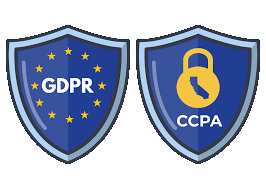What is it?
Quality Management Systems software (QMS) allows businesses to consistently apply quality processes to products that meet stakeholders’ expectations and regulatory requirements. QMS provides a comprehensive solution to reduce costs, improve communication between supplies and customers, and increase quality and customer satisfaction.
Reduce costs
Errors are costly. A QMS allows companies to have operational consistency which reduces the costs associated with scrap and rework due to mistakes. As manufacturers strive for digital transformation within factories, the use of spreadsheets to manage operations begins to dissipate. QMS streamlines document management, leaving more time for employees to complete other pressing tasks. These changes will improve a company’s overall bottom line by eliminating excessive inspection and auditing costs. An integrated QMS allows managers to have accurate and real-time data with automated alerts to help companies prevent problems before they occur. In addition, this software has automated workflows allowing managers to customize procedures and standardize the process to keep business moving. QMS reduces costs by reducing operational errors, increasing workflow efficiency, and providing visibility to solve problems quickly.
Improve communication
Relationship management is a key aspect of any organization, outside parties can have a direct effect on the success of a business. An integrated quality management system improves overall communication between important stakeholders such as suppliers and customers. A quality management system makes it easy to unveil new policies and guidelines company-wide, without missing any key stakeholders in the process. The software allows documentation to be centralized and extends a firm’s safety to suppliers and customers. In addition, a company’s visibility will increase with an integrated QMS by generating reports on the performance of suppliers. The system ensures management can see the performance ratings of suppliers, and so suppliers can see areas of improvement and take corrective actions. When organizations can focus on clear communication it improves the outlook for working towards future goals. A strong relationship management process helps guarantee a reliable flow of goods in and out of an organization.
Improved quality and customer satisfaction
A customer-centered organization does not merely meet but rather strives to exceed customer expectations. As the industry continuously changes, gaining the attention and loyalty of customers becomes more challenging. This means companies must retain current customers. A quality management system allows executives to monitor quality through standardized and easy-to-run reports which can be executed remotely. These reports inform managers of prevention and corrective action. This ongoing commitment creates long-lasting and loyal customers.
Infor Quality Management
Infor Quality Management is a fully integrated enterprise system that focuses on addressing quality assurance issues within operations. IQM was designed to complete the supply chain, and to easily develop, track, and manage processes related to training, qualifications, productivity, and performance. Using Infor Quality Management’s supply chain capabilities, you can assess and control overall business performance, manage audits, and determine the true cost of quality. Infor Quality Management brings control, consistency, and predictability to your product lifecycle and supply management activities, which can bring products to market faster, with superior quality performance.
If you’re interested in learning more about Infor Quality Management and how it can be integrated to improve your company’s operational efficiency.





Good article about Quality Management System, it will be helpful for organizations to choose wisely depending upon their needs.